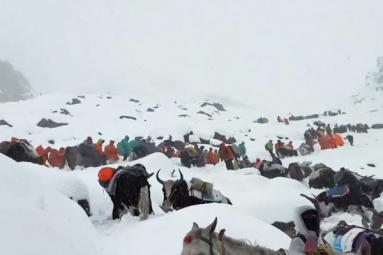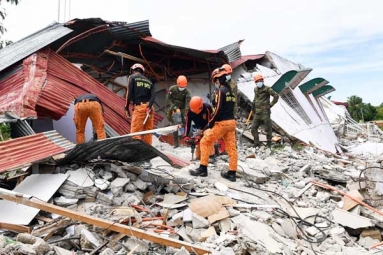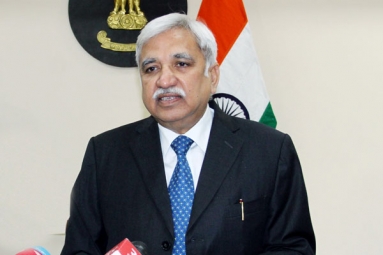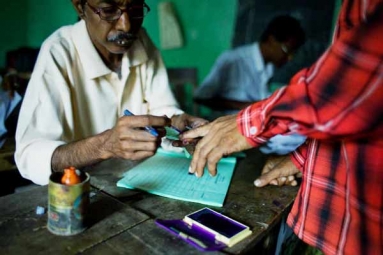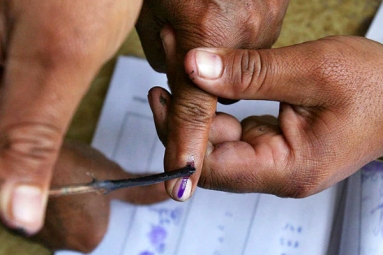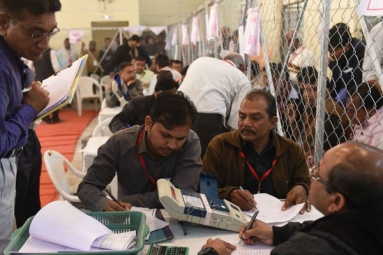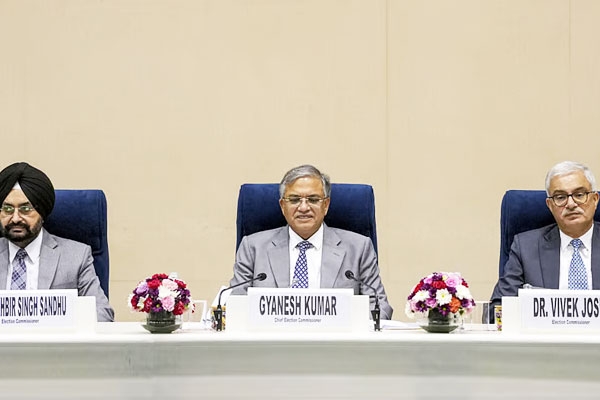
(Image source from: PTI)
For the first time in twenty years, Bihar will conduct its voting in only two phases — on November 6 and 11 — as announced by the Election Commission on Monday, continuing a pattern of shorter voting periods in various states. The counting of votes and the announcement of results will take place on November 14. In the last three Assembly elections, the duration for voting in Bihar has gradually decreased, going from six phases in 2010 to five in 2015 and three in 2020. In 2005, voting was carried out in four phases. This latest change follows the Commission's decision last year to conduct the Jammu and Kashmir elections in three phases — the shortest in at least 28 years. In these elections, the current NDA government led by Chief Minister Nitish Kumar will compete against the Opposition coalition of the RJD and Congress. In the previous election, the RJD was the largest party with 75 seats, but the BJP and JD(U) together secured 117 seats. A new party, Prashant Kishor’s Jan Suraaj, is expected to take part this time.
The term for the 243-seat Bihar Assembly will end on November 22. This announcement was made just one day after the Commission's visit to Bihar on October 4 and 5 to check readiness for the elections. Political parties requested the Commission to schedule voting after the Chhath festival, which takes place from October 25 to 28, and also suggested a reduction in the number of voting phases. Besides considering political parties' opinions, the choice to shorten the voting phases is also part of the Commission's effort to have brief polling schedules after the lengthy Lok Sabha elections in 2024 — which were held during a severe heatwave — which was blamed for the reduced voter participation. In multiple areas, temperatures in May approached 50°C while a large part of the nation experienced extreme heat. The 2024 Lok Sabha elections took place over seven phases, making them the second longest parliamentary elections in the history of the country since 1951-52. Acknowledging a mistake in planning, then Chief Election Commissioner Rajiv Kumar mentioned, “Elections should have finished a month earlier. They shouldn't have been held in such high temperatures. This is a significant election that requires a lot of resources. There is extensive movement. We cannot lessen the time required for the process, but it could have taken place earlier instead of in this heat.”
#SCHEDULE for the GENERAL ELECTION TO THE LEGISLATIVE ASSEMBLY OF BIHAR 2025 - Two Phases
— Election Commission of India (@ECISVEEP) October 6, 2025
Details #Bihar #BiharElections2025 pic.twitter.com/ZeTBbpX32O
After that event, the Election Commission has aimed to lessen the stages in future state Assembly elections. The elections in Bihar will be the very first Assembly elections since the Commission chose on June 24 to begin a Special Intensive Revision of voter lists in the country, starting with Bihar. Changing from what has been done in the last two years, the Commission opted to create the voter lists anew rather than just updating them yearly and before elections. Following the Special Intensive Revision in Bihar, the number of voters was reduced by 68.5 lakh, but 21.53 lakh new voters were added, resulting in about 7.42 crore total registered voters. The Commission’s choice to implement a Special Intensive Revision has been contested in the Supreme Court, which will hear it again on Tuesday. These Bihar elections are also the first Assembly elections announced by the Commission since Kumar became the Chief Election Commissioner in February of this year.
The previous Bihar elections took place in 2020 and were the first Assembly elections held during the COVID-19 pandemic. At that time, the voting was divided into three phases occurring between October 28 and November 7, with votes being counted on November 10. The voter turnout in 2020 was 56.93%, with women participating at a rate of 59.69% and men at 54.45%.





